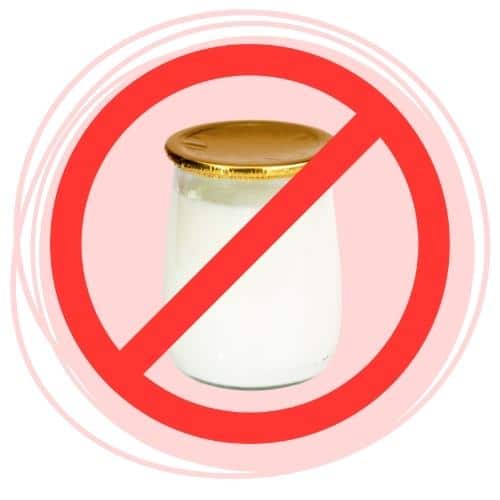
There are so many questions surrounding the idea of virginity — is it possible to lose my virginity to myself? I am still a virgin if I masturbate? And the answer is complicated because there are different ideas about what virginity is.
Virginity is a societal construct — it’s something that we have made up and imbued with meaning and morality. So, while there are some commonly held beliefs, essentially, it is whatever we define it as.
What’s more, there is no way to test if someone is a virgin. Nothing necessarily changes in your body after engaging in sexual activities for the first time. This makes it very subjective and open to interpretation.
So actually, losing your virginity doesn’t have a clear-cut definition. In reality, it can mean different things to different people. Some, myself included, might also argue that the phrase is so morally loaded that it does more harm than good and that we should actually switch it out for something more neutral.
I’ll get to that rant later in the post! But, first, I’ll answer your burning questions about virginity and masturbation!
Can I lose my virginity to myself?

As virginity is a societal construct, and there are many different interpretations of virginity, only you can decide for yourself if masturbation counts as losing your virginity. Your decision is likely to be influenced by your own personal ideals, religious beliefs, and the society you grew up in.
Generally, most people in the US believe that losing your virginity involves having sex, usually penetrative sex, with another person. So, if you agree with this view, you cannot lose your virginity to yourself. In other words, you can masturbate and still be a virgin.
Masturbation is a totally normal and healthy part of life and there is absolutely nothing to be ashamed of!
However, even when it comes to masturbation, not everyone agrees.
Some people still believe that a vulva owner loses their virginity when their hymen breaks, whether that is through sex or masturbation. This belief, however, is scientifically incorrect — the hymen is not a biological marker of losing your virginity. There is SO much misinformation about it that I’ve dedicated a whole section to it below!
Also, notice that this belief only applies to vulva owners. This sexism is another issue with many of the beliefs about virginity!
How can I lose my virginity to myself?
As you might guess, this again depends on your definition. If you define losing your virginity as being penetrated for the first time regardless of whether it is by yourself or another person, you might choose to use your fingers to start with.
Regardless of whether you view masturbating as losing your virginity or not, here are my top tips for first-time penetration:
- Wash your hands.
- Find a quiet, private space and create a warm relaxing environment.
- Start by stimulating other sensitive areas of your body, such as your nipples or clitoris. This will help you become aroused and allow your vagina to prepare for penetration.
- Use some water-based lubrication on your fingers and slowly stroke your clitoris and the opening of your vagina. You should notice your labia swell and become more sensitive and notice that you are producing natural lubrication.
- Slowly and gently slip one finger into your vaginal opening and allow your body to adjust to the sensations.
- Experiment with moving it in and out or stroking the front wall of your vagina to see what feels good.
- Remember, most vulva owners need clitoral stimulation to orgasm, and it’s totally normal if you don’t orgasm the first time you masturbate. It can take some time to figure out what you like!
Are you still a virgin if you use a toy?
You guessed it! That’s totally up to you and your beliefs! Going with the general consensus that you only lose your virginity when you have sex with another person, then most people would say yes, you are still a virgin if you have used sex toys.
No matter what you believe, if you are using a sex toy for the first time, look for a small, beginner’s dildo or a vibrator for beginners. You will also want to take your time, make sure you are fully aroused before trying to insert anything, and use plenty of lubrication.
What is Virginity?

As I’ve already said, virginity isn’t something that physically or medically exists — it’s a belief.
Still not sure? Take a look at these questions:
- Does penetrative sex count as losing your virginity?
- How about oral sex, fingering, or hand jobs? What about if you are in a lesbian or gay relationship?
- If your hymen is broken are you not a virgin anymore?
- Does masturbating count as losing your virginity?
- Are you a virgin if you use sex toys?
Everyone will have different but still totally valid answers, showing that virginity is all about how we interpret it.
So now, let’s look at some of the different ideas about virginity and where they fall short!
Different Interpretations of Virginity
Traditionally, losing your virginity involves having PIV (penis in vagina) sex for the first time.
The focus on PIV sex is a heteronormative view that only focuses on sex between a man and woman, which excludes the experiences of many LGBTQIA+ people. For example, It doesn’t account for sex between two people with vulvas or two penis owners. It also tends to exclude people who choose to engage in sexual activities without penetration. Two vulva owners, for example, might engage in fingering and oral sex but not penetrative sex, but not consider themselves virgins.
Many religions prize and encourage virginity, with many teaching that women especially should remain virgins until marriage. Some religions even require that a woman proves she is a virgin before marriage — something that is technically impossible to show. Of course, this is a very sexist approach, as it shames women who don’t remain virgins while men are free to have sex as they please.
Another related view is that a vulva owner is a virgin when her hymen is still intact and that a broken hymen shows that you are no longer a virgin. However, this is scientifically wrong and there is no way to test if someone is a virgin.
Why the Hymen isn’t a Biological Marker of Virginity

While the belief that an intact hymen shows that a vulva owner is a virgin is not true, the belief still persists, especially within some religions, with some even performing so-called ‘virginity tests.’ These incorrect ideas and practices can be very dangerous to vulva owners and can lead to shame and in some cases violence towards women who cannot prove they are virgins. This makes it really important to educate people on what the hymen actually is and how it has no relation to sexual status.
It can make women feel the need to undergo surgery to restore their hymen.
Here is why you cannot tell if someone has had sex by looking at their hymen:
- The hymen doesn’t usually cover the whole vaginal opening. It is not a freshness seal like you get on yogurt! For most vulva owners, it’s more like a fringe of tissue around the vaginal opening and the shape and size vary from person to person.
- The hymen is stretchy and may or may not break during penetrative sex.
- Not everyone is born with a hymen. Some women naturally do not have one.
- The hymen can also break from everyday activities, such as doing sports or from using a tampon.
So really, what is virginity, and what counts as losing it?
If losing your virginity isn’t only about breaking the hymen, and it isn’t limited to PIV or even penetrative sex, then what is it?
The answer is, you have to decide for yourself! Whether you count your first sexual activity, such as fingering or oral sex, as losing your virginity or decide that only penetrative sex counts is entirely up to you!
Why I Think We Should Ditch the Phrase Losing Your Virginity

The term losing your virginity has some pretty horrible implications that go beyond simply describing the first time you have sex and can perpetuate some pretty harmful ideas.
First up, virginity is closely linked to the ideas of purity and innocence. It comes with the idea that when you have sex for the first time, you are no longer pure and innocent, which isn’t remotely true.
Secondly, using the verb ‘to lose’ implies that you are missing something or giving up a part of yourself after you have sex for the first time. Again, this is not the case. You are not missing anything or less of a person after having sex for the first time.
Thirdly, it is sexist. There is a greater expectation of women to remain virgins and they tend to experience more shame and negativity than men who choose to have their sexual debut at an earlier age or outside of marriage. It’s another way to police women’s bodies, and it equates a woman’s value to her sexual status.
Next, it’s the traditional view of virginity excludes LGBTQIA+ individuals who don’t engage in PIV sex.
Lastly, societal views surrounding virginity put unnecessary pressure on people to either keep or lose their virginity at certain age or time rather than allowing them to make their own decision when they are ready.
Sexual Debut — A Better Alternative to Losing Your Virginity

I much prefer the term sexual debut! This academic phrase doesn’t have the same moral implications that come with the phrase losing your virginity. It also does away with the idea of losing something in favor of a debut, which I think sounds far more glamorous!
Tips for Enjoying Your First-Time — No Matter What the Activity

No matter what your views are on virginity, there are some really important things to consider when having a new sexual experience. It’s normal to feel a little nervous when trying something new for the first time, but you should always make sure you feel safe and ready. And, remember, you can withdraw your consent at any time!
- Consent is essential! The acronym FRIES can help you remember the key elements of consent. Consent should be Freely given, Reversible, Informed, Enthusiastically given, and Specific to each activity.
- You should never feel pressured by an individual or by peer pressure to do something you are not ready for or don’t want to do.
- You should only take the next step when you feel physically and emotionally ready.
- Discuss your boundaries first, and always make sure you trust the person you are with to respect your boundaries.
- Take each new experience slowly and give your brain and body time to adapt.
- If you feel any pain, stop and reassess.
- Always make sure you are fully aroused before penetration.
- Use some good water-based lubrication.
- Don’t worry if you don’t have an orgasm the first time. Sex isn’t only about having orgasms — it’s about pleasure and connecting with your partner. Not to mention, putting too much focus on having an orgasm can be distracting and actually make it more difficult to have one!
